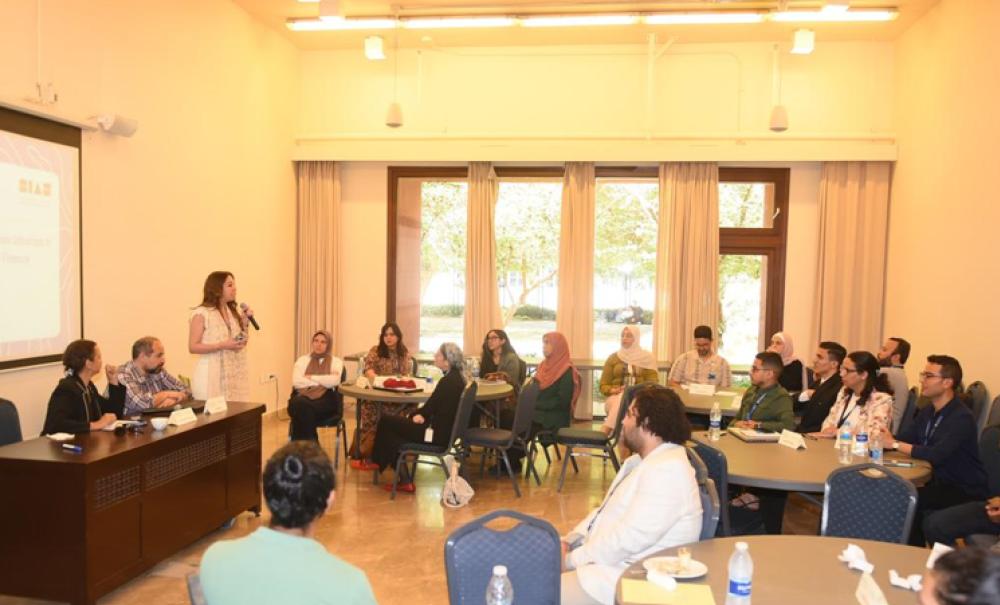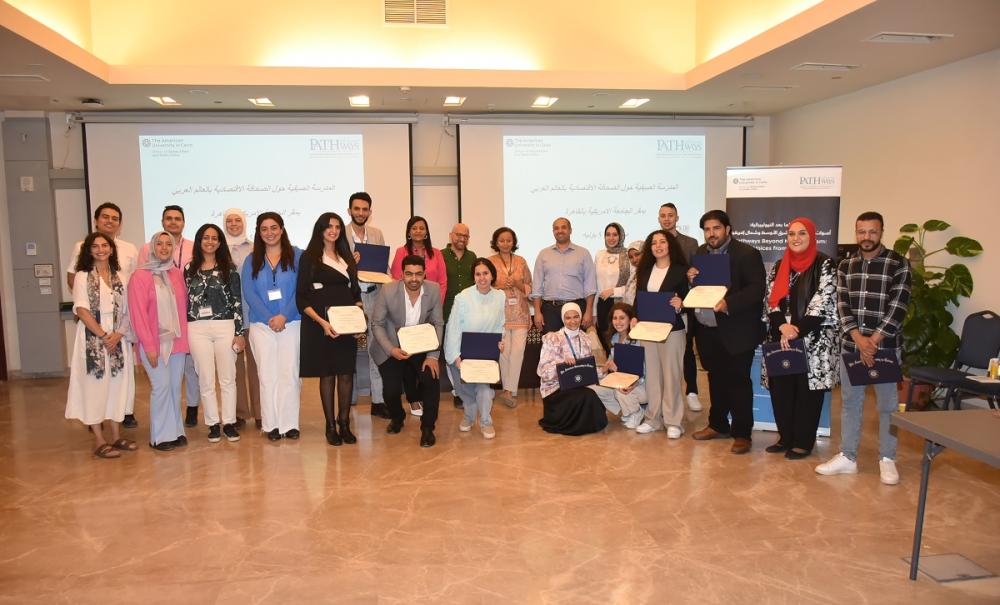
Spring/Summer School Program
The Spring School on the Political Economy of Green Urbanism in the Arab World
May 2025
The spring school on the Political Economy of Green Urbanism in the Arab World was a five-day program from May 18 - 22, 2025. It brought together a diverse group of researchers, practitioners and activists from the MENA region, including Bahrain, Lebanon, Tunisia, Morocco, Iraq and Egypt to take a look at the future of sustainable city development in the region.
Cities in the Arab World are among the world’s most vulnerable to climate crises. Heat, drought and man-made and natural disasters continuously threaten urban and social solidarity networks across the regional, national and local scales. In response, adaptation and mitigation strategies are designed to alleviate the potential and multi-scalar effects of these crises on the region’s urban majority. These strategies frame cities as a primary cause of compounding climate crises and are rooted in a development paradigm that markets “green solutions” to persistent “urban problems,” like urban sprawl, the construction of new cities, high-cost infrastructure and overcrowding, among others. Known broadly as ‘green urbanism’, this paradigm underscores a more environmentally conscious mode of urbanization and urban development through a mix of planning, policy and finance.
How can green urbanism address the unique socio-ecological vulnerabilities of Arab cities, given their geographical diversity? How can green urbanism be reimagined as a pathway toward a more equitable and just model of urban development? Are there alternative paradigms to green urbanism that might better align with the region’s socio-political and ecological realities? What are the implications of market-driven green urbanism for public access to essential services like housing, water, and energy? How can cities in the Arab World mobilize sustainable financing for green urbanism projects without exacerbating urban inequalities?
Co-organized by the Pathways Beyond Neoliberalism: Voices from MENA project based at The American University in Cairo (AUC) and the Built Environment Institute for Applied Studies - Africa and the Middle East (BIAS-AME), this spring school critically questions the paradigm of green urbanism within the historical, political and economic context of the Arab World. It specifically explores the political economy of green urbanism about urban planning, municipal and local politics, socio-cultural profiles and climate finance across the region.

The First Summer School on Economic Journalism in the Arab World
June 2024
An intensive program that convened 15 mid-career to experienced economic journalists from across the Middle East and North African region, representing Egypt, Lebanon, Sudan and Jordan.
The four-day curriculum provided a dynamic blend of lectures, workshops and interactive discussions. Renowned figures in journalism, academia and market practitioners shared their expertise and practical insights. Instructors included Maged Atef, editor-in-chief at Istithmar news and the summer school coordinator; Nevine Wahish, managing editor in Al-Ahram Weekly newspaper; Amr Adly, assistant professor, Department of Political Science at AUC; Nadine El Sayed, assistant professor, Department of Journalism and Mass Communication at AUC; Yahya Wagdy managing editor at Mada Masr; Hesham Dinana, assistant professor, Department of Journalism and Mass Communication at AUC and Ahmed Sameh, chairman at Uptown - 6th of October.
The program focused on three core areas, "Journalistic Concepts and Applications," "Skill Building and Critical Thinking" and "Enhancing Writing and Storytelling Skills," to strengthen participants' expertise in professional media ethics, investigative journalism techniques, economic terminology and crafting compelling narratives for economic news coverage. Additionally, it addressed the evolving role of economic journalism within the MENA region.
The inaugural summer school on Economic Journalism serves as an opportunity to equip journalists with the necessary skills and knowledge to navigate the complexities of economic reporting in the MENA region.
